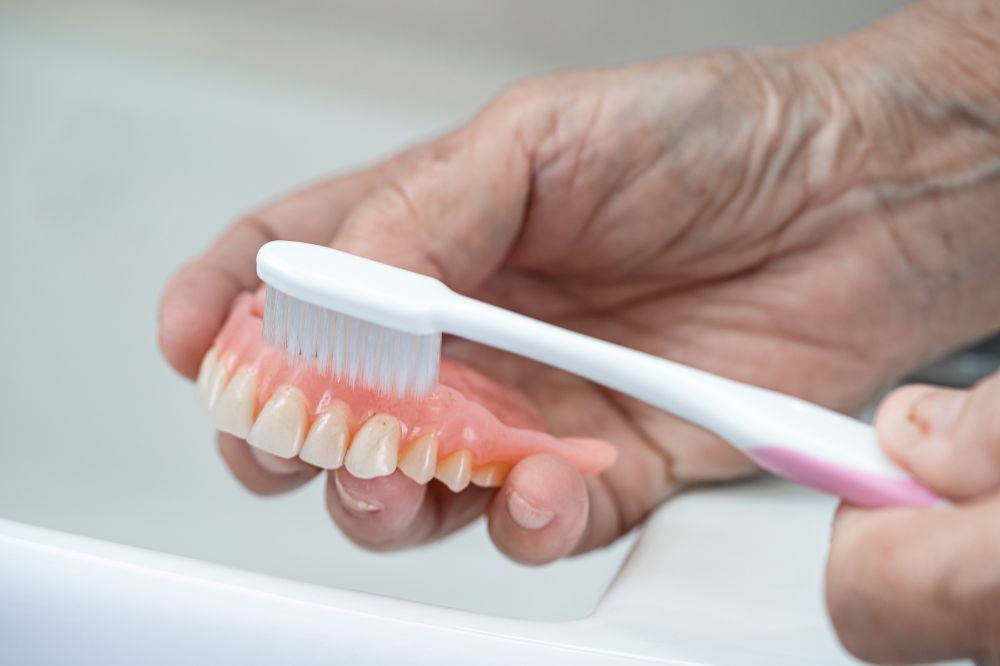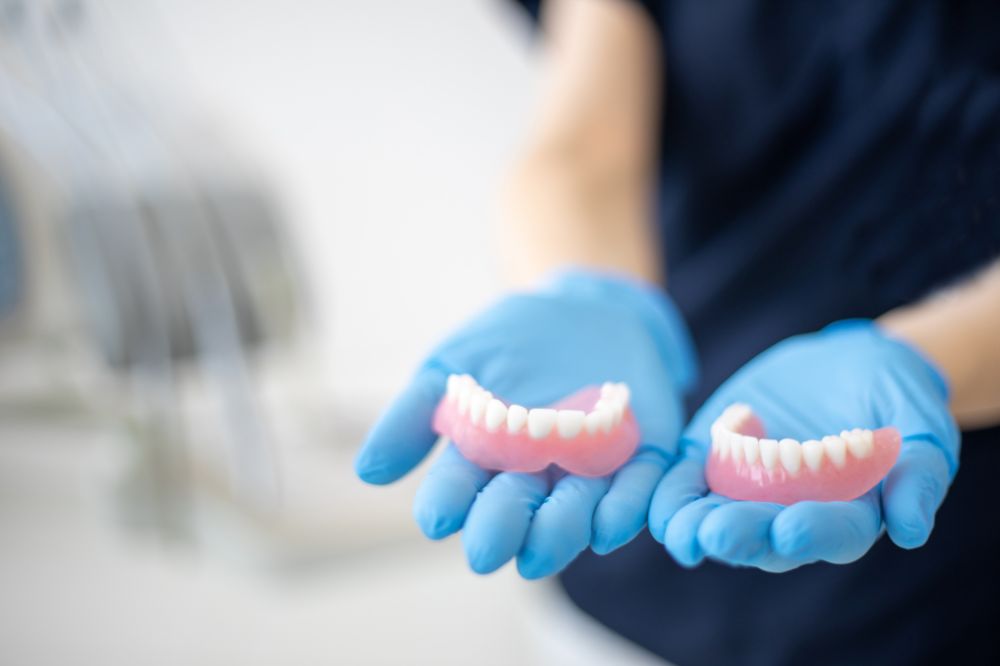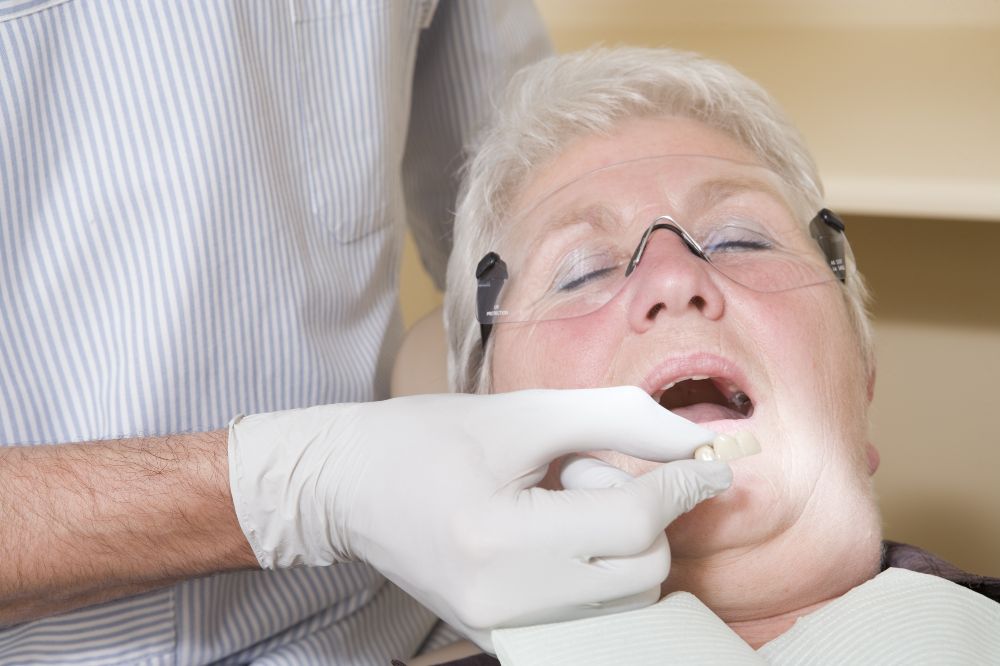Daily Cleaning Routine for Dentures
Just like natural teeth, dentures should be cleaned daily to remove food particles, plaque, and bacteria. Here’s a simple routine:
1. Rinse after meals
After eating, remove your dentures and rinse them under lukewarm water. This helps dislodge food particles and prevents plaque build-up.
2. Brush carefully
Use a soft-bristled toothbrush or a denture brush. Avoid using regular toothpaste, as it can be too abrasive and may scratch the denture surface. Instead, use a non-abrasive denture cleanser recommended by your dentist.
3. Clean your mouth
Don’t forget your gums, tongue, and the roof of your mouth. Gently brush them with a soft toothbrush to stimulate circulation and remove plaque.
4. Soak overnight
Most dentures need to stay moist to keep their shape. Place them in a denture-soaking solution or plain water overnight. Always follow the instructions given by your dentist.
Storage Solutions: Keeping Dentures Safe
Proper storage plays a vital role in maintaining the durability of your dentures.
-
Always keep dentures moist when not in use. Dry dentures can warp and lose their shape.
-
Use a denture case with ventilation holes if you’re storing them outside of water for short periods.
-
Keep out of reach of children and pets, as dentures are delicate and can break if dropped.
If you’re unsure which soaking solution to use, speak to your dentist at Dentist Acton for tailored advice.
Best Practices for Denture Care
Handle with care
Dentures can be fragile. When cleaning them, place a folded towel or a bowl of water in the sink to prevent damage if they slip from your hands.
Avoid hot water
Never soak or rinse dentures in hot water, as it can cause them to warp.
Schedule regular dental visits
Even if you wear full dentures, it’s important to have routine check-ups. Your dentist can check the fit, inspect your gums, and ensure your dentures remain in top condition.
Watch for changes
If your dentures feel loose, cause sore spots, or make chewing difficult, don’t ignore the signs. Ill-fitting dentures may need adjustment or replacement.
Diet and Lifestyle Tips for Denture Wearers
-
Start with soft foods when adjusting to new dentures.
-
Cut food into smaller pieces to make chewing easier.
-
Avoid sticky or very hard foods that can damage dentures.
-
Rinse your mouth with water after consuming staining foods or drinks like coffee, tea, or red wine.
Maintaining a balanced diet rich in vitamins and minerals also supports gum health and helps dentures feel more comfortable.
How Long Do Dentures Last?
With proper care, dentures typically last between 5 to 10 years. Over time, changes in your gums and jawbone may affect how well they fit. According to NHS guidance, regular reviews are essential to determine when relining, rebasing, or replacement is needed.
At Dentist Acton, we not only provide high-quality dentures but also offer ongoing care and adjustments to ensure long-term comfort.
When to Seek Professional Help
Visit your dentist if you notice:
-
Persistent sore spots or gum irritation
-
Cracks, chips, or visible damage
-
Dentures slipping or moving when speaking or eating
-
Difficulty chewing or discomfort
Quick professional adjustments can prevent more serious oral health problems and restore comfort.
Denture Care at Dentist Acton
At Dentist Acton, we provide comprehensive denture care in West London, including:
Our team takes an individualised approach, ensuring every patient gets dentures that look natural, fit comfortably, and last as long as possible.
Conclusion
Caring for your dentures doesn’t have to be complicated. With a consistent cleaning routine, proper storage, and regular check-ups at Dentist Acton, you can enjoy a confident, comfortable smile for years to come.
If you’re based in Acton, Ealing, or West London and need expert advice or denture services, contact our clinic today to book your consultation.




